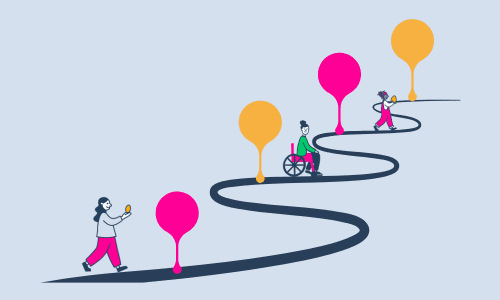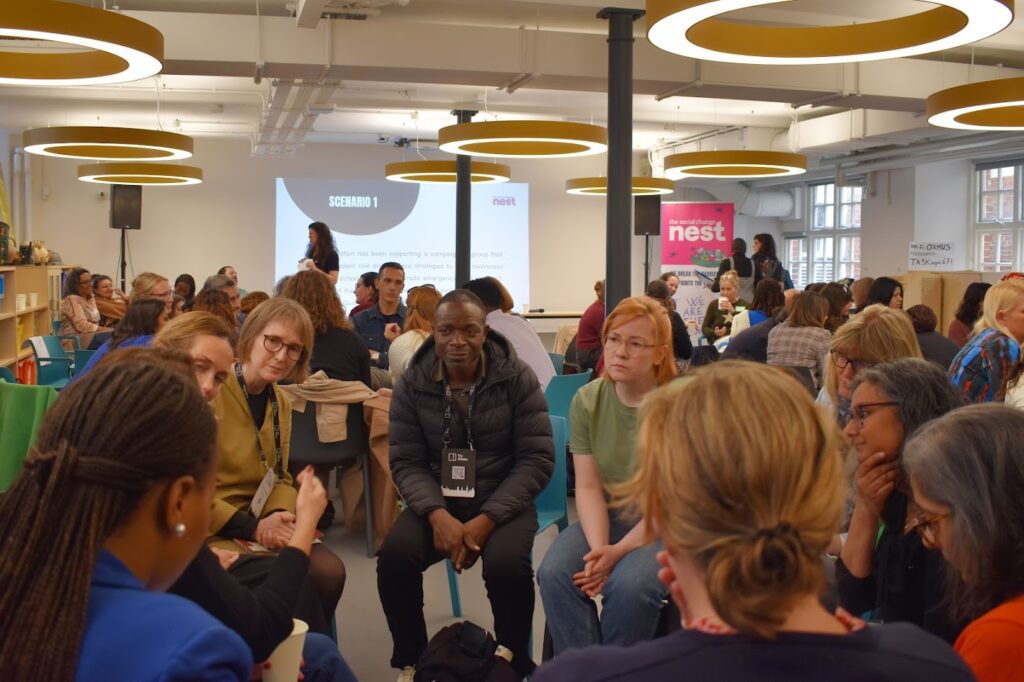How fiscal hosting is helping facilitate participatory grantmaking
The Participatory Grantmaking Community (PGM) is a growing global collective dedicated to sharing knowledge and best practices around participatory grantmaking. Since March 2020 the community has grown to around 1500 people in 73 countries, and the Social Change Nest has been their fiscal host.
We sat down with Jelena Stephenson, MD of the Participatory Grantmaking Community to find out more about their story.
Tell us about the mission of the Participatory Grantmaking Community?
The Participatory Grantmaking Community is united in our belief that when grantmaking processes are designed and owned by communities themselves, philanthropy will be more effective, democratic and just.
Our ambition is to contribute to a substantial change in philanthropy by encouraging funders to listen and learn about different ways of funding. Over the last three years the Community has held sessions with over 7,000 attendees in total at nearly 100 learning and networking events. We develop mechanisms to help shift the power from funders to underrepresented communities and other marginalised groups, and support each other through peer-to-peer learning, resource sharing and advocacy.
What holds you back from achieving this?
There’s no doubt the pandemic brought many significant societal challenges to the forefront, and we’ve all seen an urgent need to make an impact where it’s needed, without being held back by red tape.
Traditional philanthropy is stuck in the status quo. We have to see a shift, which won’t happen overnight, but changes are necessary if we’re going to tackle escalating challenges around the world. By replacing outdated systems with new community-led initiatives, traditional funders can see that by giving away a little bit of power isn’t going to stop them from making a good impact on grantees. We don’t require them to give up everything, just share their power to make better grantmaking decisions.
How has fiscal hosting helped you overcome this?
For the PGM Community, fiscal hosting has been the route to giving and getting donations quickly. It enables us to receive funding but also to compensate our facilitators and speakers and cover operational costs in a transparent way, so that everybody can see our finances and we can be held accountable for everything we do.
In participatory grantmaking, people with lived experience (e.g. of homelessness, societal exclusion) are on a decision-making panel and can decide where money should go. In comparison to traditional philanthropy, this is more impactful because the right people are making the money decisions and are then supported by innovation in terms of both technology and process. This is where fiscal hosting can play a vital part in bridging the implementation gap and getting money quickly into the hands of those who need it most.
The Social Change Nest is about making a positive change in society and that’s what we’re trying to do in the world of philanthropy. There are lots of things we can collaborate on and support each other in this way. We’re all learning and growing, and we’re proud to be developing changing systems alongside the SCN. The Open Collective platform has also helped us stay open and aligned in our values.
What do you see as the future of fiscal hosting?
I’m interested to see how the fiscal hosting space grows and evolves. There’s work to be done around raising awareness, improving accessibility and building trust in new technology – it’s just about being honest and open and communicating that.
Technological progress will help fiscal hosting services become more user friendly and inclusive, so different types of organisations around the world can reduce the barriers (e.g. bridge the digital divide) and benefit from all it has to offer.
What are your hopes and dreams for the future?
I hope we continue to have an impact on implementing PGM, so we can look back in 5 years and say that X organisations achieved a lot and made a real difference to their communities using participatory grantmaking because we helped them at the beginning of their journey, or supported them in deepening their PGM practices. We want to keep advocating, sharing learnings and measuring impact, so we can continue to prove to funders that what we’re doing works.
A final plea for funders: don’t give up easily on the idea of changing your ways! Be open to implementing new practices, be open to listening to people with lived experience, be open to learning from other funders who have successfully implemented participatory grantmaking as we all learn together, work on systems change and improve as a society.
If you are interested in finding out more about the Participatory Grantmaking Community check out their website here.
- Case studies
Keen to learn more about fiscal hosting?
Book an intro call with our team.

